
ABOUT RESOURCE AFRICA
Resource Africa’s roots lie in the attempts to incorporate communities into conservation efforts that started in the 1980’s when a programme known as the Communal Areas Management Programme for Indigenous Resources (CAMPFIRE) was developed in Zimbabwe. CAMPFIRE sought to engage and provide incentives and extend the benefits communities could derive from conservation.
This initiative was a game-changer and today the principles that drove the CAMPFIRE programme are recognised as part of a suite of acceptable conservation approaches in several international protocols and in national conservation strategies in the region. Within southern Africa, this approach is known as community-based natural resource management (CBNRM), whereby communities are granted rights to use natural resources in a sustainable, legal manner according to national policies and regulations.
Throughout the 1990s and 2000s, Resource Africa (RA) played a key role in promoting the concept and application of the CBNRM approach to meet the triple objectives of biodiversity conservation, poverty alleviation and good governance. Our strategies were to ensure the perspectives of marginalised rural communities were heard and influenced policy processes and to expose the sound science supporting sustainable use as a conservation strategy.
What We Do
We work closely with national networks of community-based organisations that practice CBNRM and their regional forum the Community Leaders Network of Southern Africa (CLN). This network is currently active in 13 countries in southern Africa (see map) where communities have already established or are in the process of establishing national CBNRM networks. Find out more about CLN here or visit their website.
We provide technical support and expertise directly to communities and their national and regional networks based on their expressed needs and requirements. Our over-arching aim is to strengthen the capacity of these networks and grassroots organisations to the point where they can advocate for their rights at all levels of governance, collect and share scientific and traditional knowledge on their own terms, deliver benefits to their people living alongside wildlife, and realise their goals of sustainable development and climate-resilient livelihoods.
Where We Work
Resource Africa presently works with rural communities in 13 Southern African countries represented by the Community Leaders Network of Southern Africa:
- Angola
- Botswana
- eSwatini
- Democratic Republic of Congo
- Lesotho
- Madagascar
- Malawi
- Mozambique
- Namibia
- South Africa
- Tanzania
- Zambia
- Zimbabwe
Our advocacy work extends to Europe, where we engage with all European Union countries and the United Kingdom.
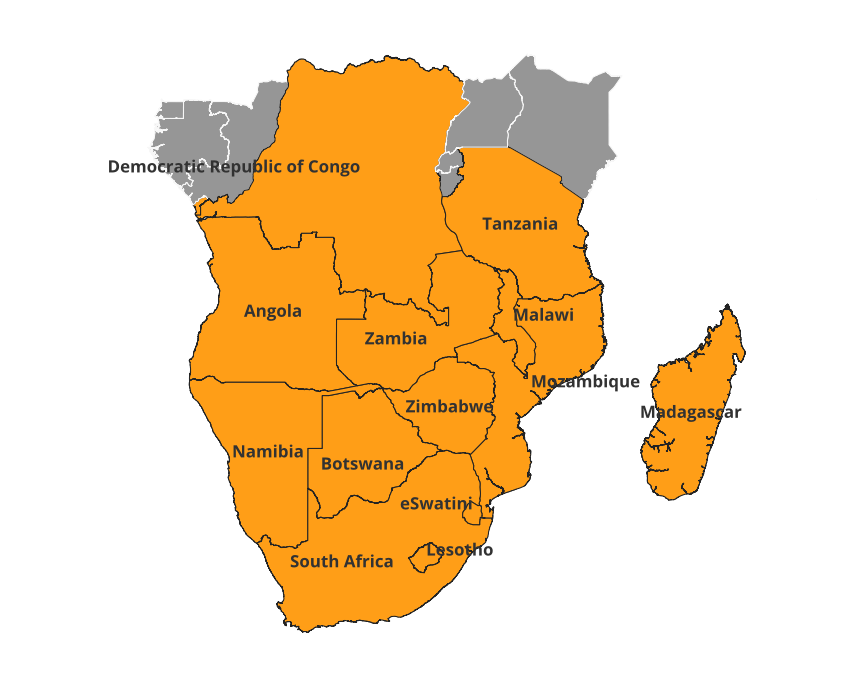
Governance

Keith Madders
Chairman
Keith Madders is an economist and a founder member of Resource Africa. His early involvement in institution-building processes for rural community management and monitoring systems for sorghum, maize, groundnuts, tea and natural resources led to the implementation of CAMPFIRE (Communal Area Management Program for Indigenous Resources) in Zimbabwe, where rural communities collectively managed their wild resources sustainably and demonstrated that maintaining biodiversity is their optimum land use. Consequently, vast tracts of communal land were returned to the wild, through processes led by these rural communities. Keith was born in Zimbabwe and was awarded an MBE in the 2002 UK Honours List.
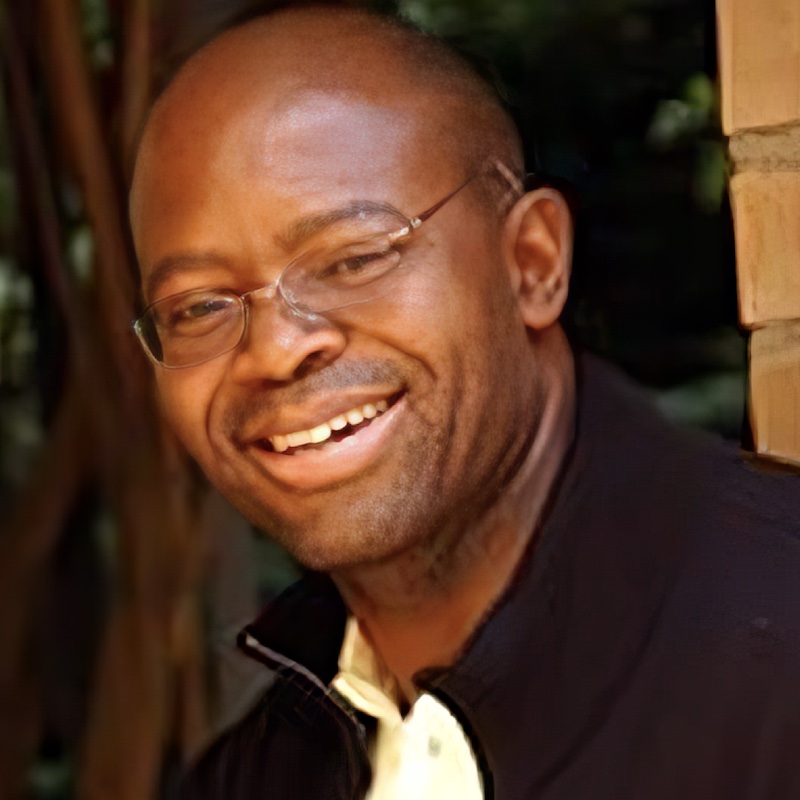
Dr. Hector Magome
Dr Daniel Thabo (Hector) Magome has been working in the global environment and development sector for over three decades, with a focus on science excellence and policy development. He specializes in protected area planning and development, stakeholder consultation, from local communities to Ministers, and large wildlife management plans, amongst others. His extensive experience includes over 19 years with the South African National Parks (SANParks), rising to the position of Managing Executive, Conservation Services. He is a published author in nature conservation and development, serves on Conservation and Tourism Boards, and is a non executive Director in 5 Star Private Safari Lodges.. Hector obtained a PhD in Biodiversity Management (policy) from Kent University and was awarded the 2004/2005 Fiona Alexander Prize for the Best Researcher.
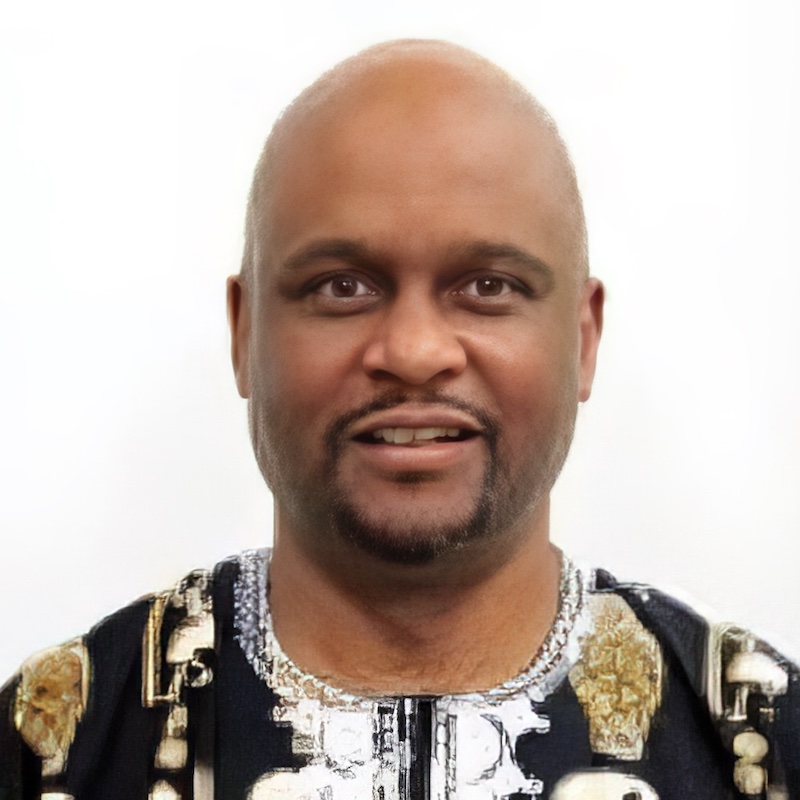
Kule Chitepo
Kule Chitepo is a leading expert in the development of world-class policy and practice for transformative integrated natural resource management. With over 20 years of experience in East and Southern Africa, he has held strategic leadership positions that have built successful partnerships among international organizations, local and national governments, the private sector, NGOs, and community groups to design and implement innovative and collaborative approaches to environmental conservation and sustainable socioeconomic development. Having served as Resource Africa’s Executive Director for a decade, he is currently a Director and Partnerships Advisor in Chemonics International’s East and Southern Africa Division.
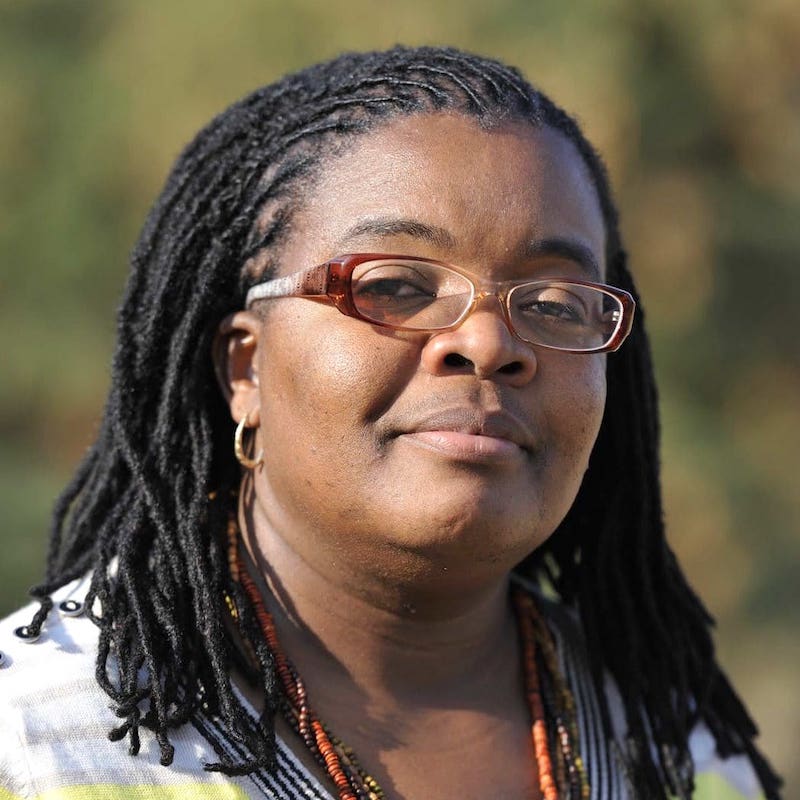
Maxi Pia Louis
Maxi Pia Louis has dedicated over two decades to community based natural resources management (CBNRM) working with government structures and non-governmental organisations in Namibia. She played a key role in the development of CBNRM related policies, Community Based Tourism Enterprises? (CBTE), including the establishment of the Namibian Community Based Tourism Association as a founding member. As part of these processes she facilitated community, government and private sectors partnerships and coordination. She is the Director of the Namibian Association of CBNRM Support Organisations (NACSO), an association comprising 8 Non-Government Organisations (NGOs) and the University of Namibia.
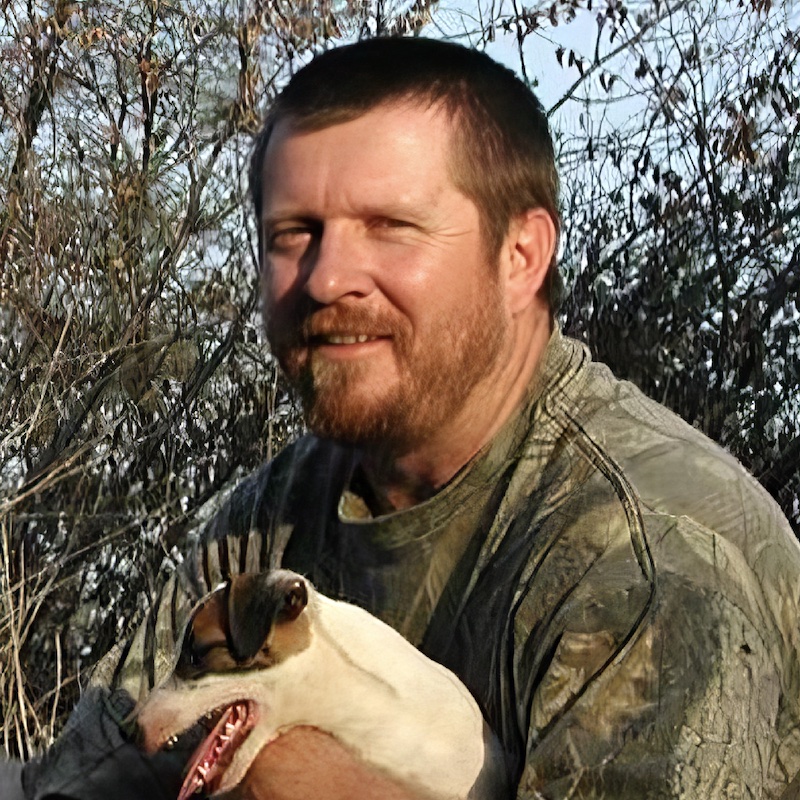
Craig Bruce
Craig Bruce’s passion for biodiversity conservation grew from his experiences in Zimbabwe, where he was born and spent most of his formative years. He contributed over 20 years’ experience as a protected area manager in South Africa, Zimbabwe and Botswana. His interaction with people living alongside wildlife raised his understanding of the power of community based natural resource management (CBNRM). This knowledge was transferred to his advisory role as programme manager for the World Wildlife Fund’s offices across Asia. After almost a decade in Asia, Craig headed up the Asia Conservation Programme for the Zoological Society of London. He is currently the Director for Conservation and Communities for Jamma International where he uses his African and Asian experiences in promoting CBNRM to Jamma’s vision a reality.
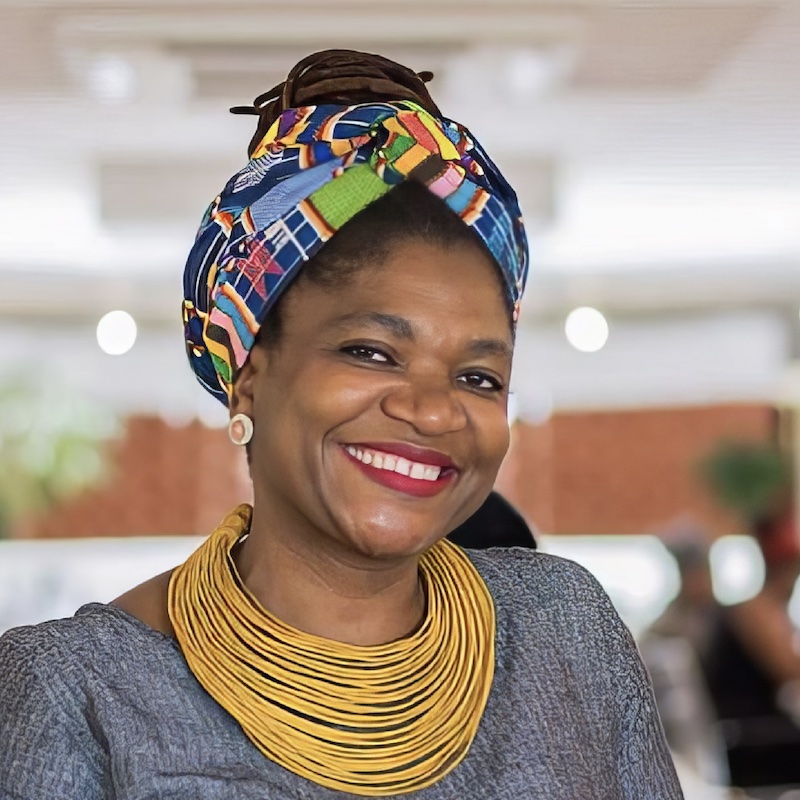
Masego Madzwamuse
Masego Madzwamuse has over 15 years working in the development sector. She specialises in development policy, poverty and inequality, community rights, economic justice, sustainable development, land rights and rural livelihoods, as well as the political economy of climate change. Masego is the Chief Executive Officer of the Southern Africa Trust and previously worked for IUCN and the Open Society Initiative. She is a long-standing member of the Southern African Sustainable Use Group. In 2019 she was selected to be a part of the Aspen Institute New Voices Fellowship class of 2020. Masego holds an MA in Environmental Science from Rhodes University.
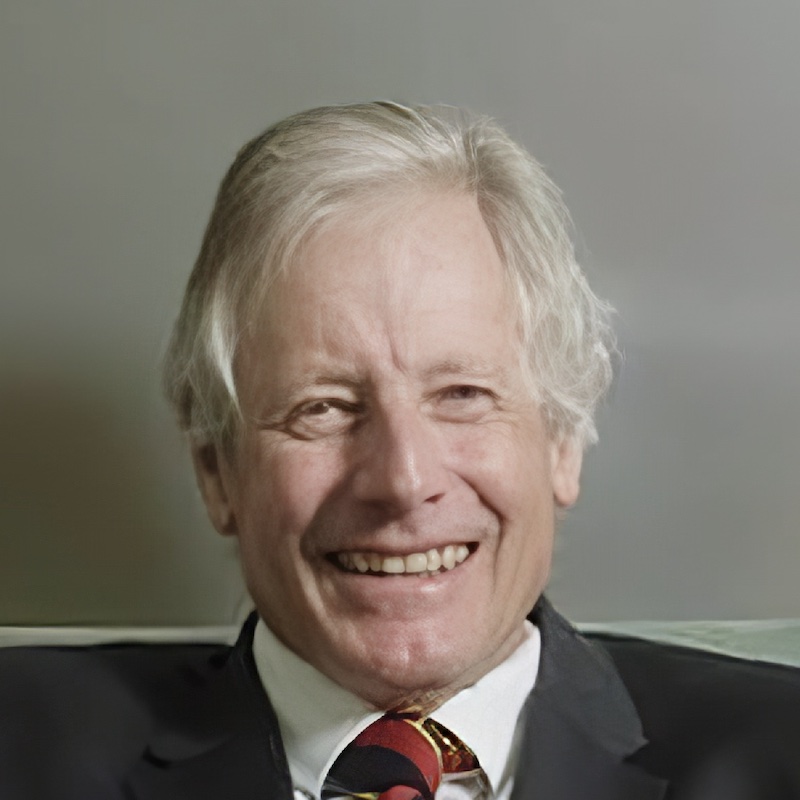
Charles Nupen
Charles David Nupen is a South African attorney and Dispute Resolution specialist. Since 2008 he has been consulting in the field of employee relations. He has been involved in high level interventions and managed major multi stakeholder negotiations in both the public and private sectors. In 2009, he received the Tokiso Mediator of the Year award. From 1998 to 2008 he directed technical cooperation projects in Africa for the International Labour Organisation (ILO), during which time he facilitated labour law reform projects and the establishment of several national dispute settlement agencies in southern African countries. In 1994 he was appointed as a commissioner of the Independent Electoral Commission, which oversaw South Africa’s first national democratic elections. He studied Law at the University of Kwazulu Natal.
Metsi Makhetha
More details will follow shortly.
Resource Africa team members

Dr Shylock Muyengwa
Programmes Director
Dr Muyengwa has more than 15 years’ experience with natural resources governance in Southern Africa. He has studied CBNRM systems in Botswana,Namibia, Mozambique, South Africa, Zambia, and Zimbabwe, focusing on governance and livelihoods, including the economic contribution of hunting and non-hunting activities to the welfare of rural households. Dr Muyengwa currently serves as the President of the Zimbabwe Evaluation Association, which provides technical support to the government. He has experience with rigorous quantitative research design and analysis/evaluation, survey design, and Zimbabwe’s agriculture, food security, youth employment and empowerment and livelihoods sectors.He holds a PhD from the University of Florida.
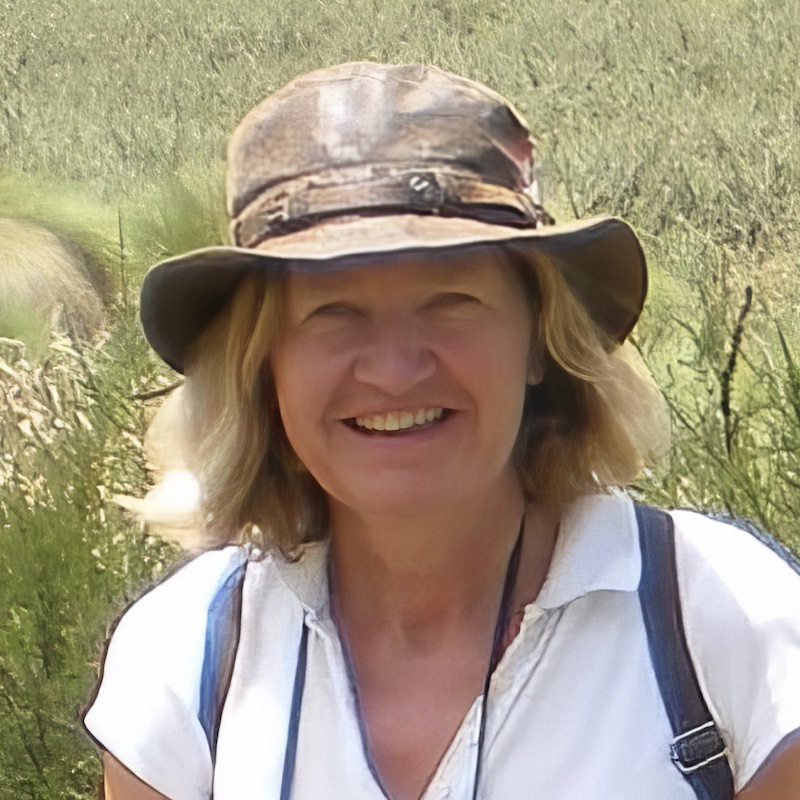
Marianne Courouble
European Programme Director
Marianne Courouble brings to RA over 25 years of professional experience in biodiversity conservation/sustainable development and technical cooperation. She gained extensive experience in international biodiversity negotiations during her time as representative of the French government, involvement in numerous Multilateral Environmental Agreements, and successful fundraising with public agencies. She has strong knowledge of the European Union (EU) and EU processes, gathered over a decade in Brussels managing EU financed projects, lobbying and working within the EU on behalf of the French Ministry of Environment. Marianne also has a solid experience in international project development and management, and technical analysis of international biodiversity related legislation. Her African field experience includes domestic ivory trade surveys in West Africa for TRAFFIC International. She represented Africa Resources Trust, the predecessor to RA, from 1997 to 2001 as France-based liaison officer on a CBNRM public awareness campaign in Europe.

Tafadzwa Magaracha
Financial controller
Tafadzwa Magaracha is a professional accountant with lots of energy and experience spanning from grants management to compliance and financial management in addition to reporting, tax compliance, administration and project management. She is well versed in the use of programme accounting and financial reporting systems and ensuring compliance with a broad range of donor financial and accounting rules and regulations, including USAID, EU and UN requirements. Tafadzwa holds Bachelor of Accounting Science from the University of South Africa, an Advanced Diploma in Management Accounting from the Chartered Institute of Management Accountants (CIMA) and is currently studying towards the Strategic Level – CIMA. She has been working with RA since 2013.
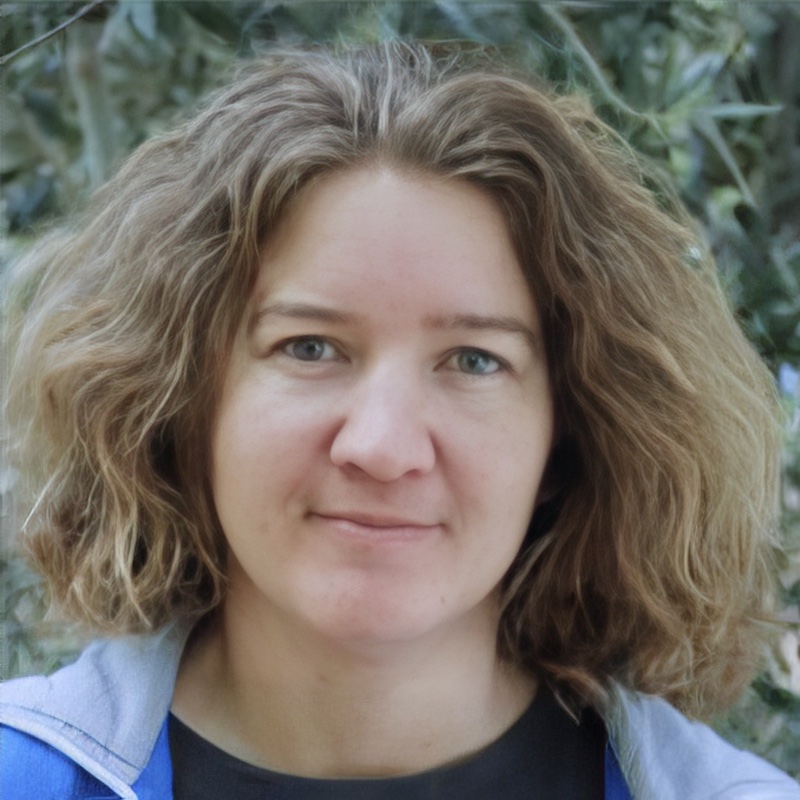
Gail C. Thomson
Communications Consultant
Gail C. Thomson (M.Sc.) is a conservation communicator who has worked closely with rural communities and conservation organisations in southern Africa. She has worked in Botswana and Namibia for ten years in wildlife management areas and communal conservancies respectively. At Resource Africa, she works as a communications consultant to amplify the voices of rural communities, especially those represented by the Community Leaders Network of Southern Africa.

Sobantu Mzwakali
Programme Manager
Sobantu Mzwakali has expertise in community engagement, research, policy analysis, advocacy, writing and publishing on multimedia platforms. His work has appeared in a variety of publications, including Open democracy, Counterpunch, and the Daily Maverick, and he has also contributed to a number of research-advocacy initiatives run by civil society organisations. Sobantu currently serves as the Program Manager at Resource Africa, having previously held positions such as the Senior Programme Officer at Natural Justice – lawyers for communities and the environment; Campaigns and Advocacy Officer at Tshintsha Amakhaya – an action learning network for civil society organisations that supports local community movements in land and agrarian reform; and as Writer for the Land and Accountability Research Centre – a research and advocacy unit within the University of Cape Town’s Law Department.
Our Partners
Thank you to our partners and donors for their generous support
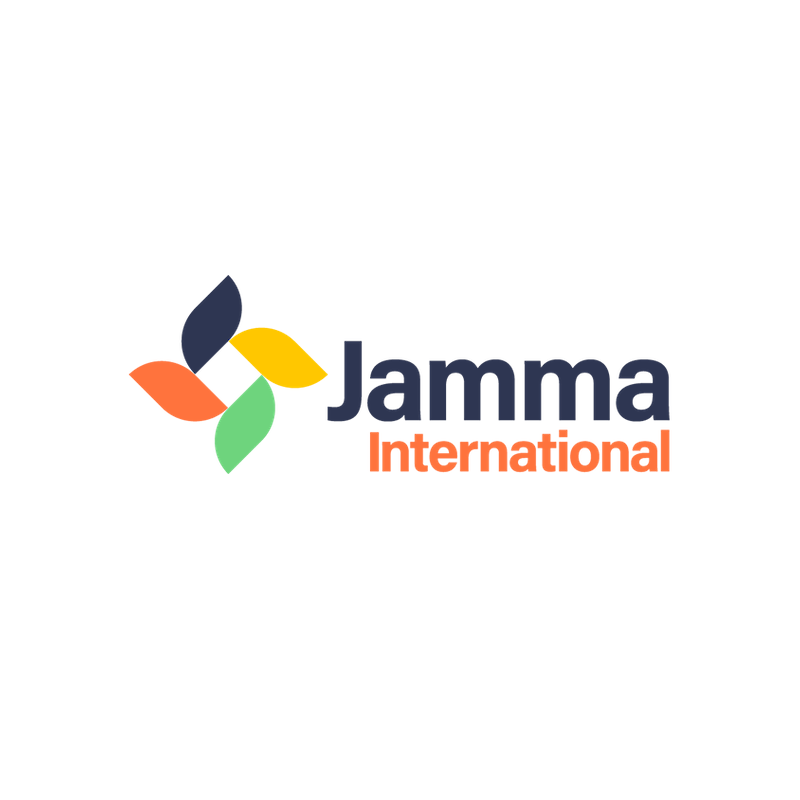
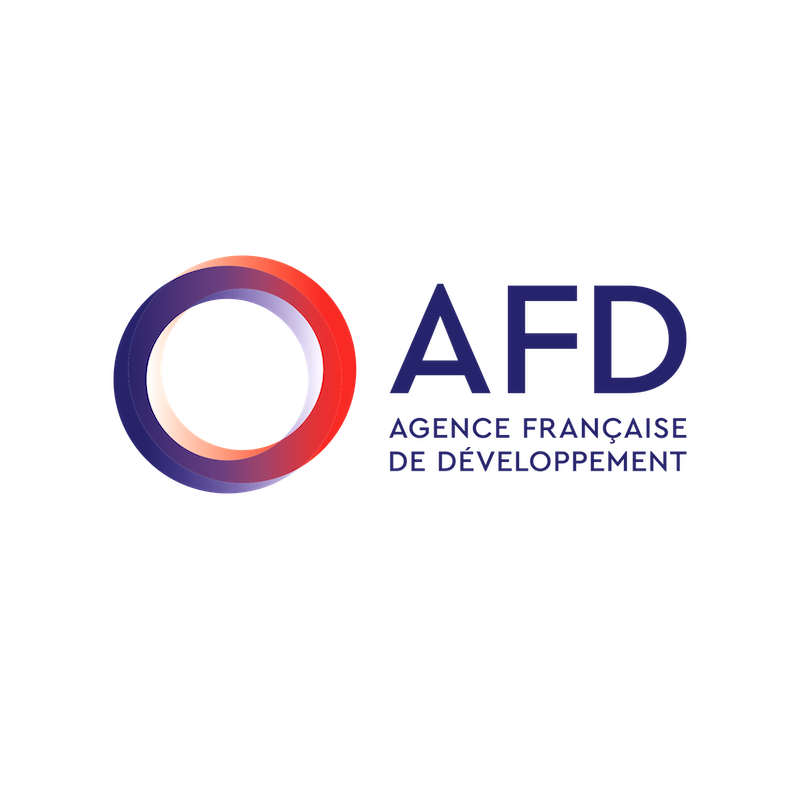
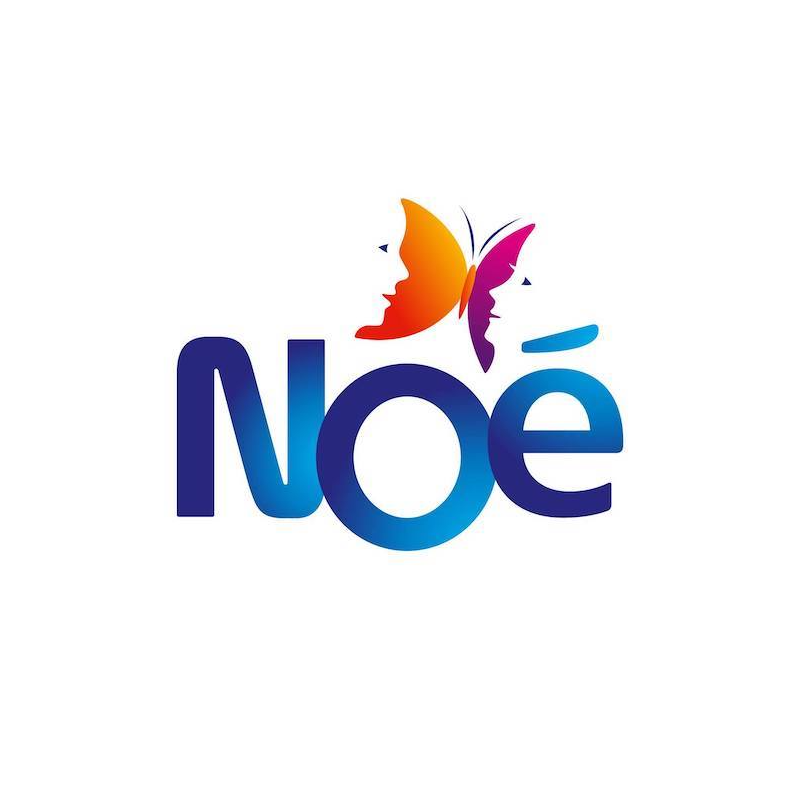
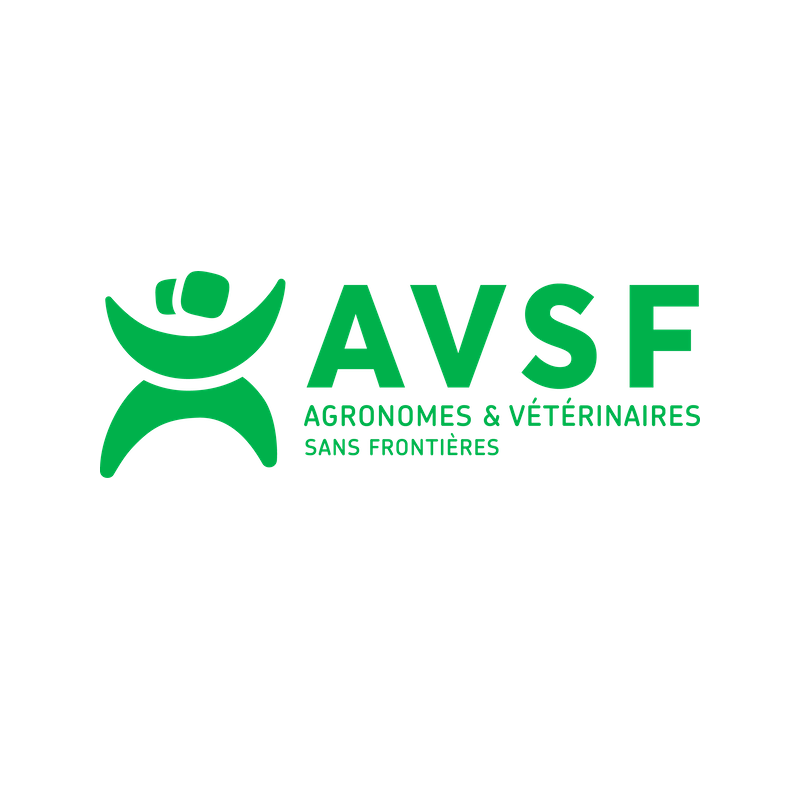
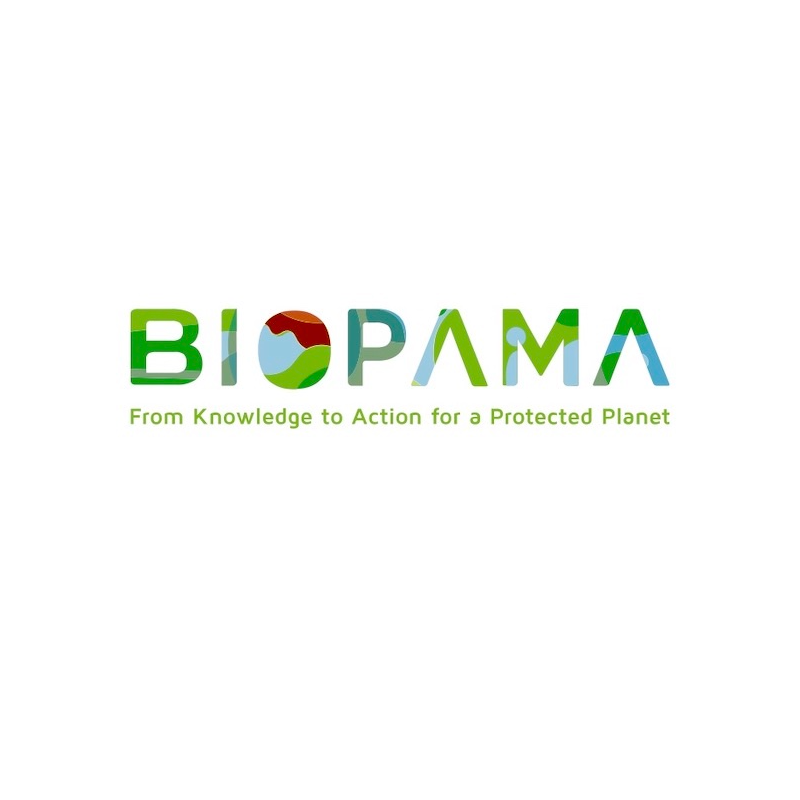
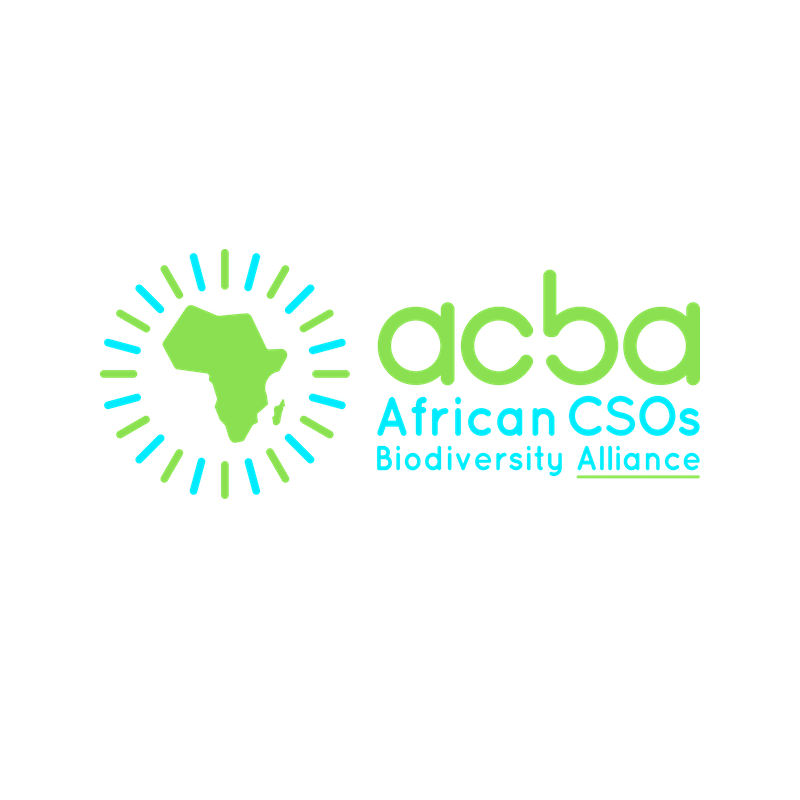
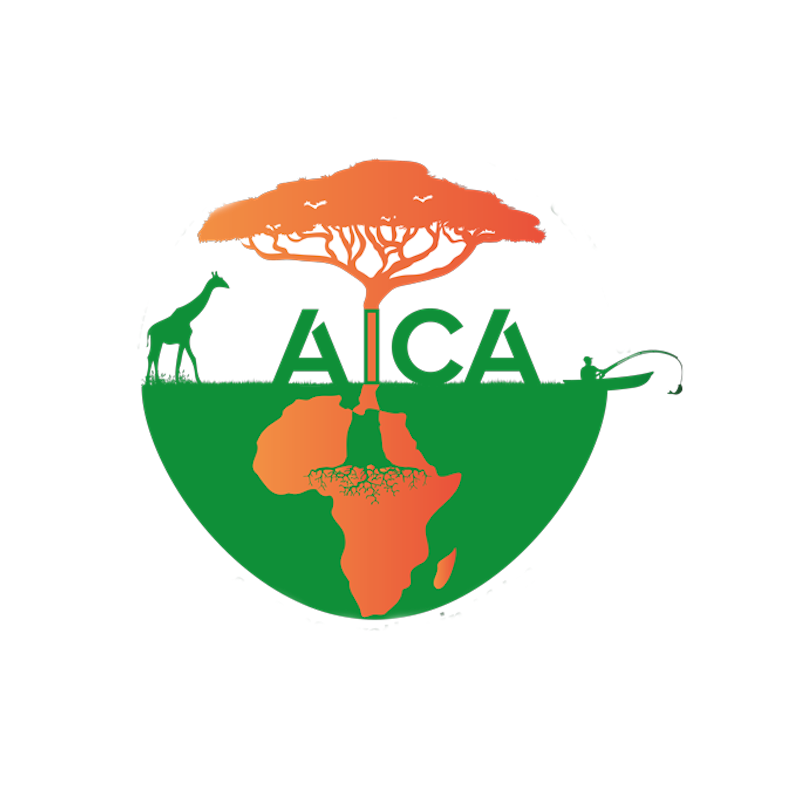
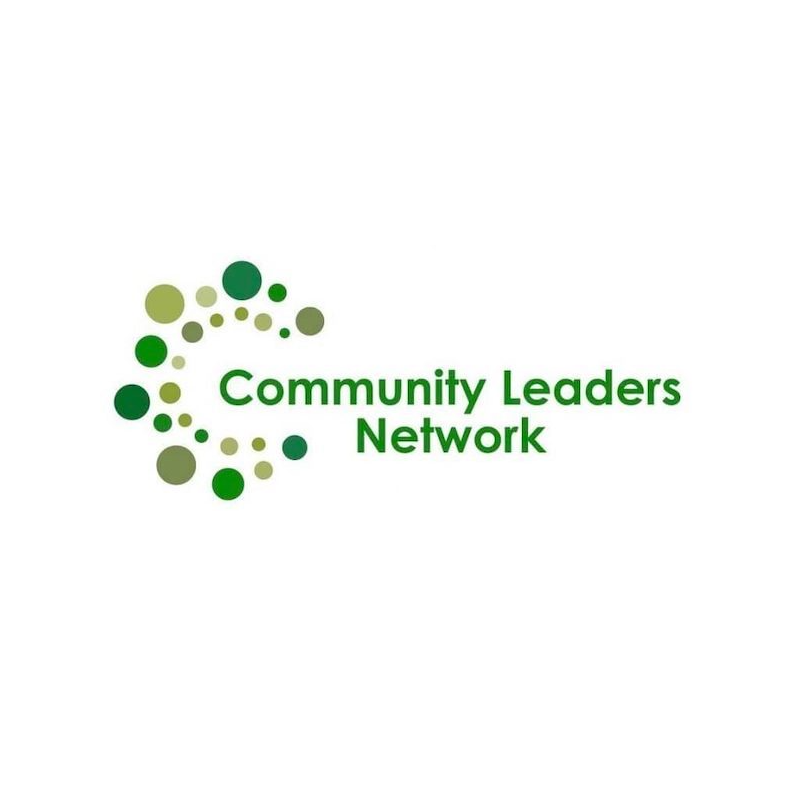
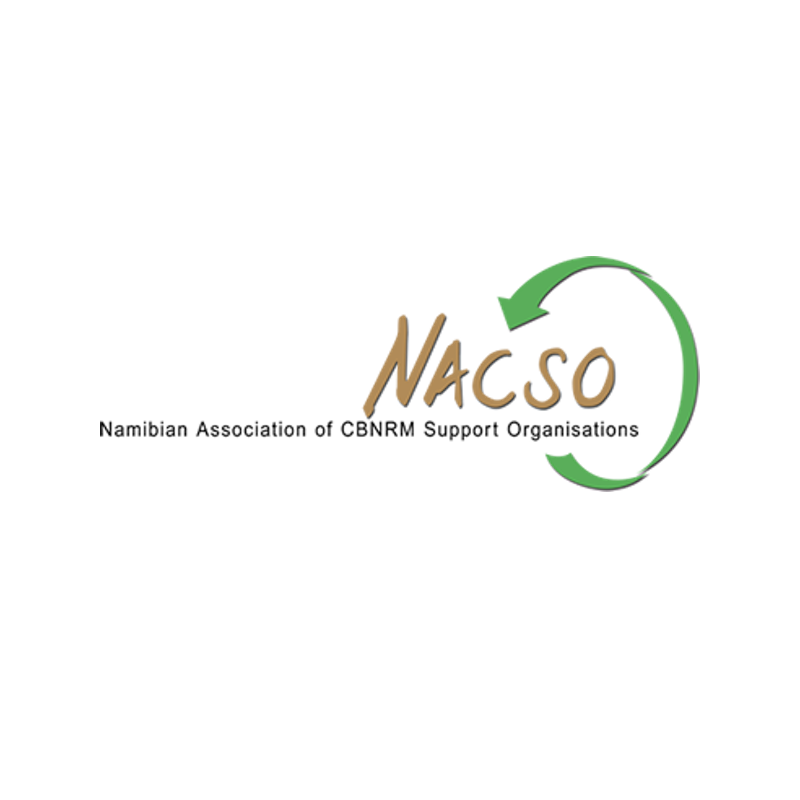
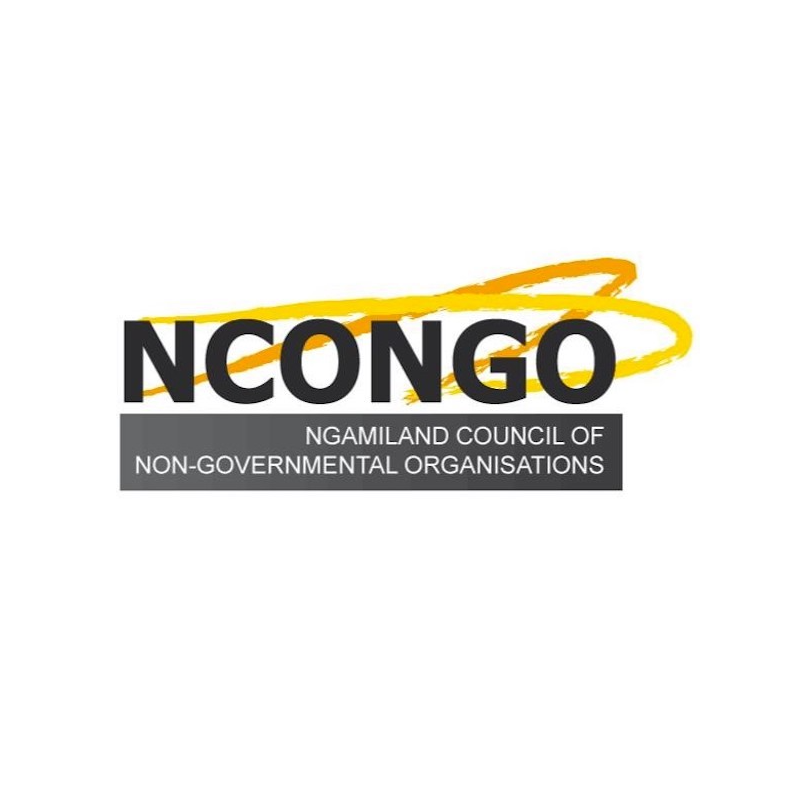
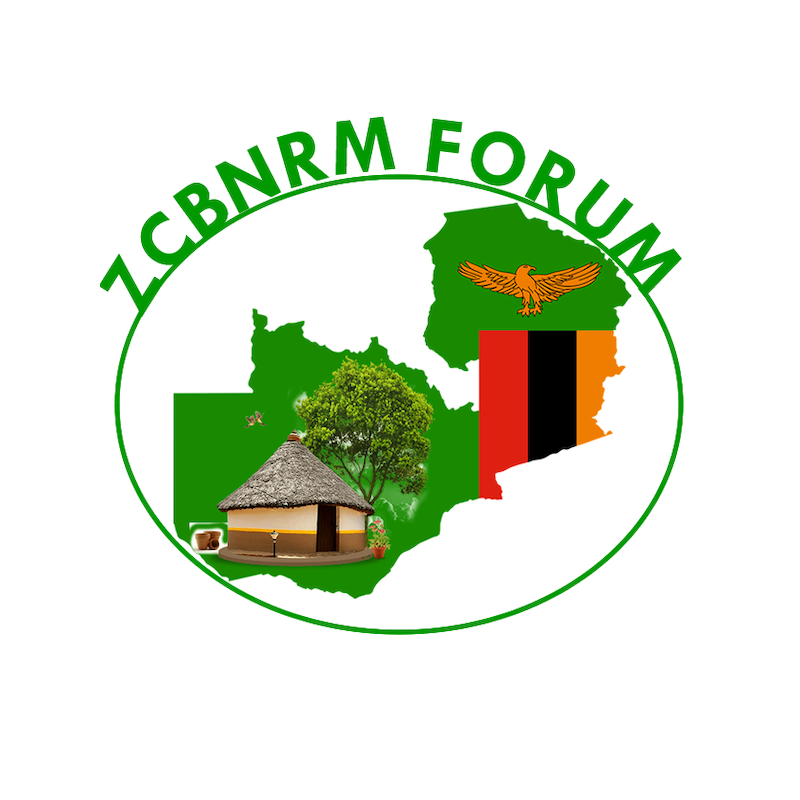

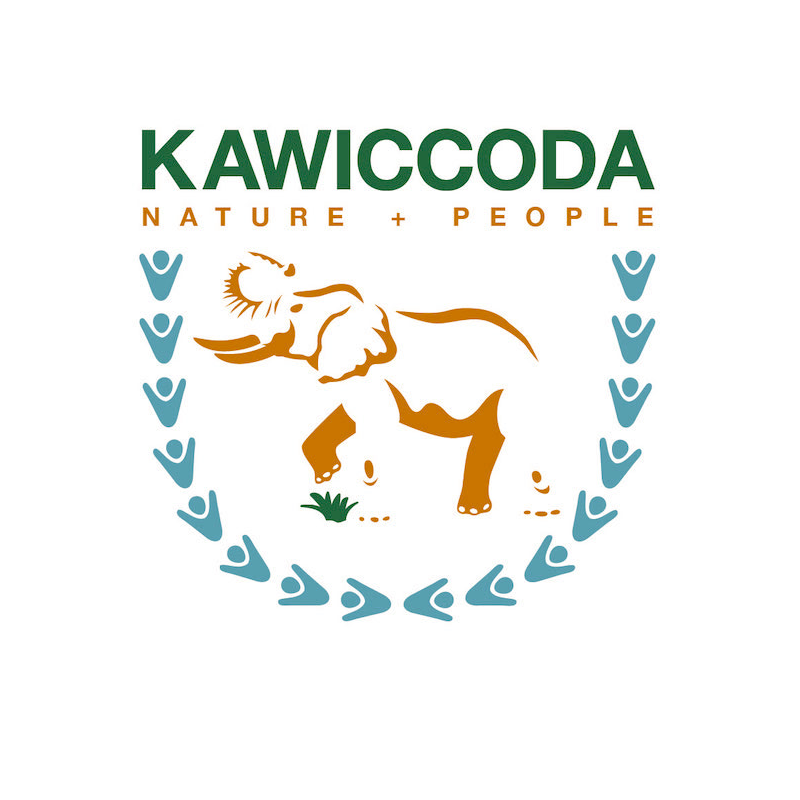

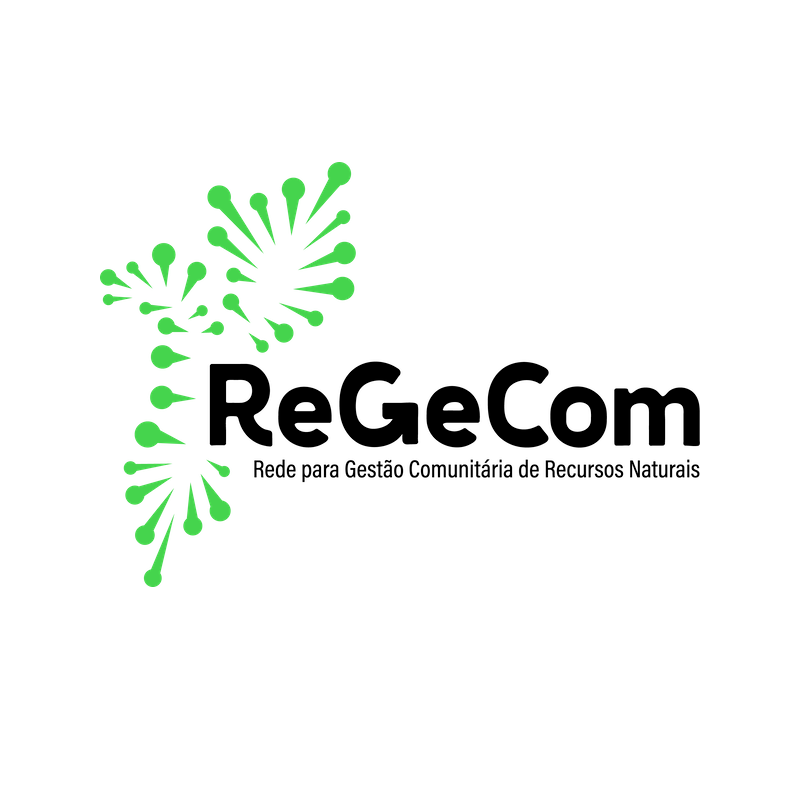
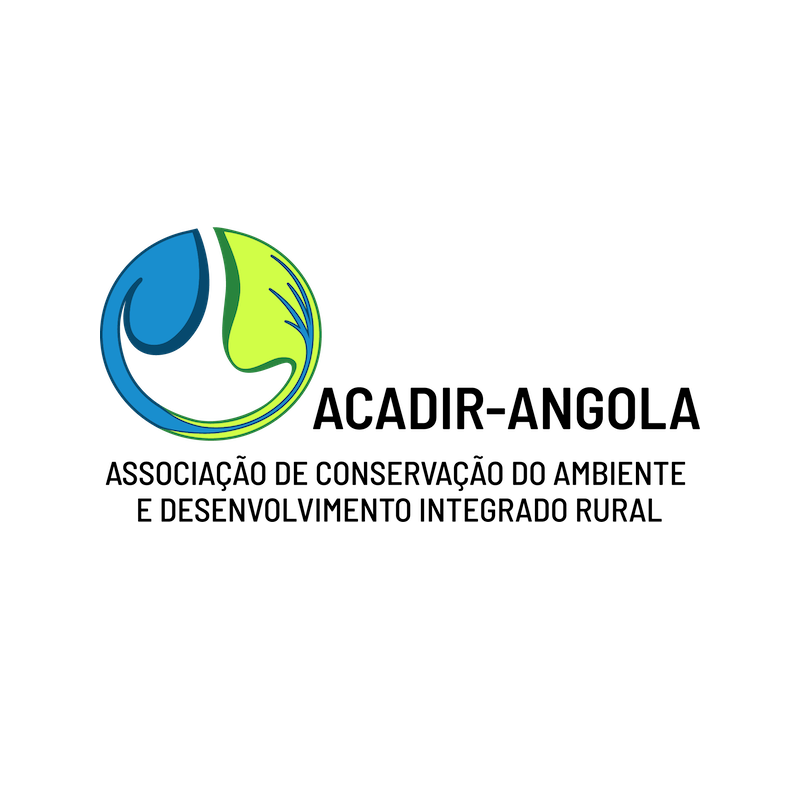
CBNRM forum Malawi
CBNRM forum South Africa